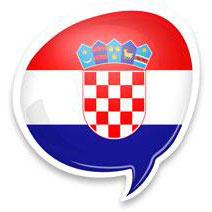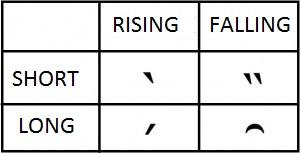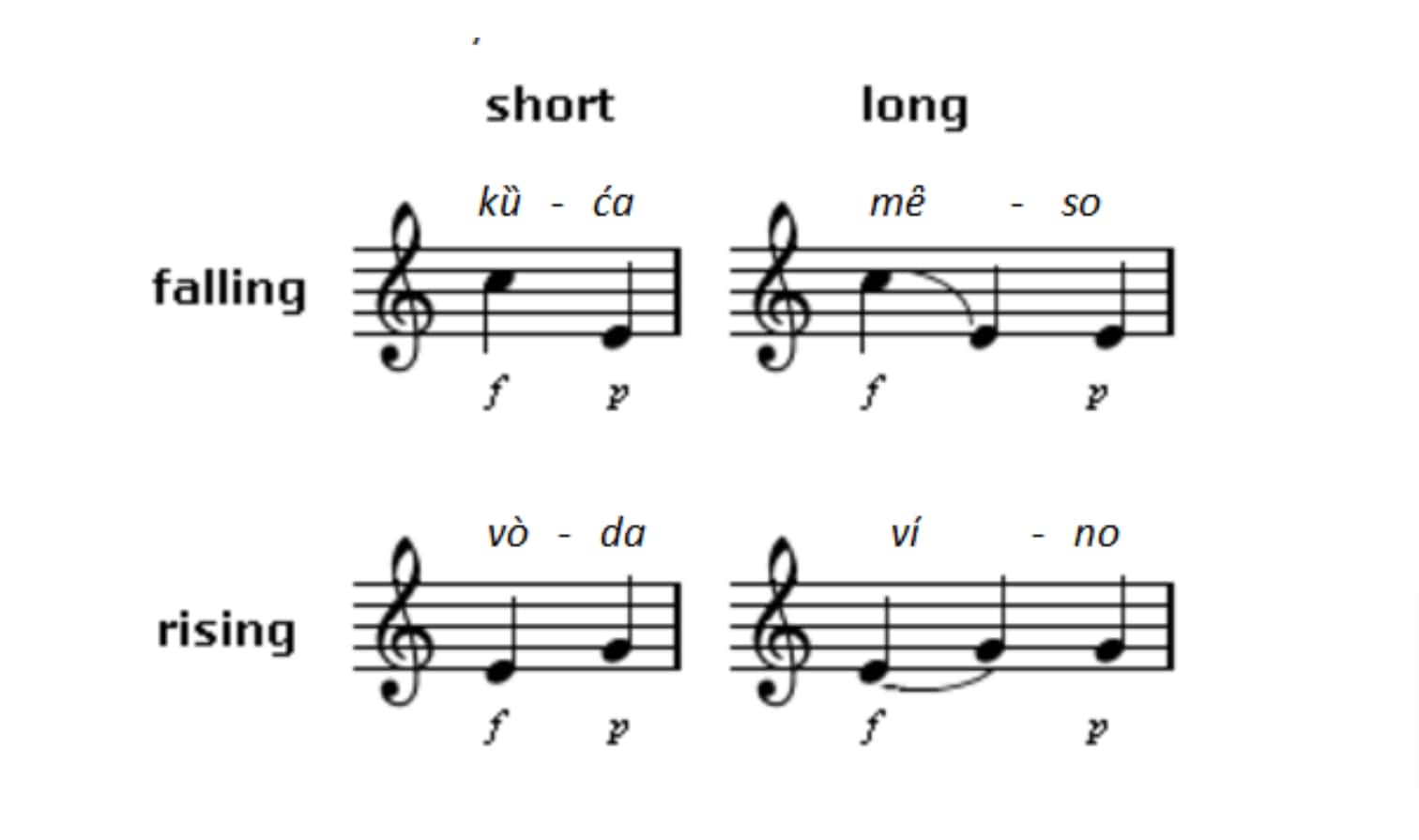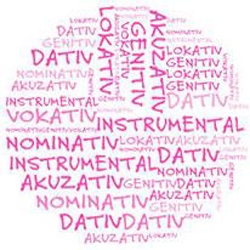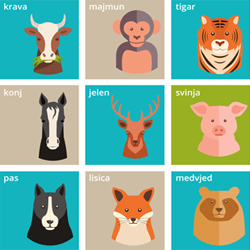As with any language, the best way to learn the correct pronunciation and intonation is to listen to native speakers speaking. You can search the internet and find plenty of videos in Croatian and made by Croatians, or movies for you or your children.
In the meantime, here are some rules to help you understand the basics!
Types of accent
Each vowel can be either kratak (short) or dug (long) and there are two types of stress, uzlazni (rising) and silazni (falling). The accent is a combination of length and stress. Because of this, there are four standard types of accents in the Croatian language: short falling, short rising, long falling and long raising.
Generally, these accents aren’t marked when writing Croatian, but in this post we will use the markings explicitly to help depict the difference between them:
Examples of different accents
As in many other countries and with many other languages, each Croatian region has its own unique rules/exceptions for pronouncing words – for Croatians it’s easy to immediately guess where someone’s from as soon as he or she starts to speak.
Five basic rules on word accentuation
Single-syllable words always have falling accents, either long or short.
moć (power) → mȏć → long falling
mač (sword) → mȁč → short falling
trg (square) → tȑg → short falling
stol (table) → stȏl → long falling
If the accent is on the first syllable, it can be any of the four accents.
žena (woman) → žèna → short rising
kuća (house) → kȕća → short falling
baka (grandma) → báka → long rising
meso (meat) → mȇso → long falling
If the accent is on an inner syllable (i.e. any syllable apart from the first or the last), it can only be a rising accent.
razmišljati (to think) → razmíšljati → long rising
inteligentan (intelligent) → inteligèntan → short rising
prijestolonasljednik (heir to the thorne) → prijestolonásljednik → long rising
otorinolaringologija (otorhinolaryngology) → otorinolaringològija → short rising
There is never an accent on the last syllable, with the exception of a few exclamations such as ohȏ (an exclamation expressing surprise).

